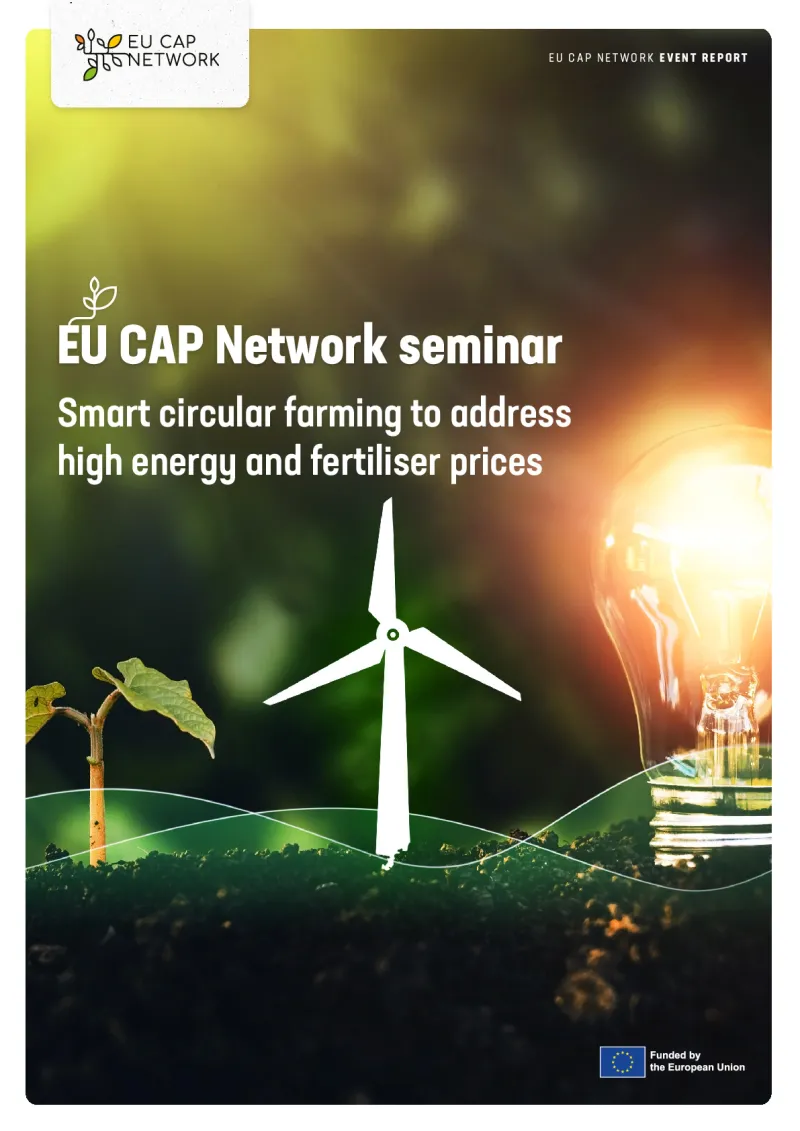Report - Smart circular farming to address high energy and fertiliser prices
- Innovation, knowledge exchange & EIP-AGRI
- Agricultural Productivity
- Climate and Climate Change
- Environmental Impacts
The overarching aim of the seminar was knowledge exchange to find and mainstream innovative solutions to respond to decreasing accessibility and affordability of energy and fertilisers.

Circular economy approaches in agriculture strongly rely on circular thinking of farmers and other rural stakeholders. They involve looking for ways to reduce waste and increase efficiency, using resources more sustainably, and creating synergies between different parts of the agricultural system. Circular thinking encourages farmers to think in terms of ‘closing the loop’ and finding ways to reuse and recy- cle resources while minimising their environmental impact. Circular thinking also encourages farmers to look for ways to diversify their farm activities and develop new markets. Finally, circular thinking for farmers can mean engaging with the communities around them, looking for ways to collaborate, and working together to create a more sustainable and sovereign food system.
The overarching aim of the seminar was knowledge exchange to find and mainstream innovative solutions to respond to decreasing accessibility and affordability of energy and fertilisers. The objective to achieve this was by building resilient farming and food systems through smart circular economy approaches at farm and local level to safeguard food security and climate objectives.